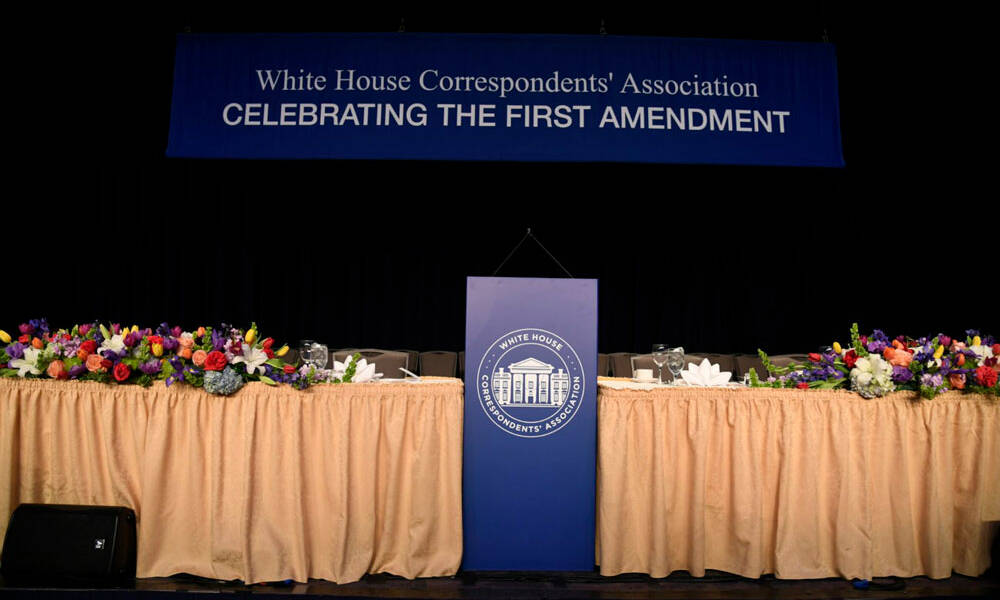
Behind the White House Correspondents’ Dinner’s More Serious Approach
While a president-driven event without its guest of honor three years in a row has certainly encouraged a rethink of the dinner, its organizer says it was already looking to move past the celebrities.
If you can’t convince the guest of honor to stop by, switch gears.
That appears to be the strategy driving the White House Correspondents’ Dinner, an annual charity event put on by the namesake White House Correspondents’ Association that has taken on a reputation as “Nerd Prom” over the years.
But with a hostile relationship between President Donald Trump and the press, as well as a celeb-heavy tradition that some felt was outdated in a Twitter-heavy world, WHCA decided to try for a different, more serious approach after Trump declined an invite to the event for a third straight year. (Trump is instead hosting a rally.)
WHCA President Olivier Knox, SiriusXM Radio’s chief Washington correspondent, told The Hill that the shift was years in the making for him.
“When I ran for the job in early 2016, I told folks that I felt the dinner needed a reset, to be more serious, to put the focus back on journalism, on the job of chronicling a presidency and holding it to account,” Knox told the outlet. “I’ve kept that campaign promise.”
What does “more serious” look like? Well, the event at the Washington Hilton will skip the traditional comedian as host, a mainstay of the event for nearly 40 years, in favor of biographer Ron Chernow, whose work has covered many historic political and business figures, including George Washington and John D. Rockefeller. Chernow has some pop culture cachet, however, as his book on Alexander Hamilton inspired the popular musical Hamilton.
Olivier says that he hasn’t pushed Chernow in one direction or another with the speech, but has expressed interest in an approach that puts “the current environment in Washington, DC, in its political context of tensions between the presidency and the press.”
Unless he’s been practicing fresh material in the Comedy Cellar in recent weeks, Chernow’s speech will likely also represent a marked shift from the 2018 dinner, when host Michelle Wolf raised controversy with an edgy set that won more fans among comedians than Washington insiders.
If the event keeps the likes of Bradley Cooper and Charlize Theron at home, Olivier says that’s not necessarily a bad thing, as he characterized the event as getting away from its roots of supporting journalism.
“I’m grateful for any and all celebrity support for a free and independent news media, but the dinner shouldn’t be remembered for which stars attended,” he said, though he also emphasized, “It’s not a Trump reaction.”
(Handout photo)






Comments